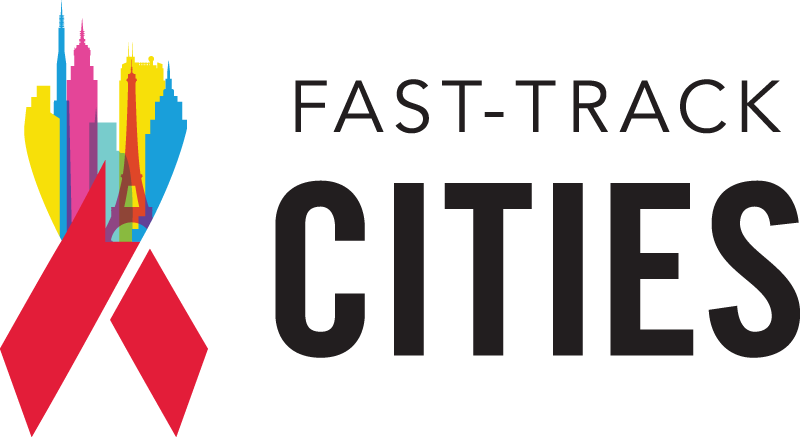
Events
We believe that progress in HIV policy, research and care depends on collaboration and shared knowledge. Our events bring together policymakers, researchers, clinicians, patient advocates, and industry leaders to exchange insights, showcase evidence, and drive concrete action at the European level.
From high-level policy discussions to expert workshops, each event is designed to advance better long-term health outcomes and quality of life for people living with HIV. Explore our upcoming and past events to see how we are shaping the HIV policy agenda across Europe.
Past Events
*
Past Events *
Event highlights over the years
2025
10 December
HIV Outcomes at the European AIDS Conference
15-18 October
2021
HIV 40 years on: Time to focus now on health-related quality of life!
01 December
HRQoL lessons-learned from Covid-19 at IAS
20 July
Working Group on EU4Health funding opportunities for HIV projects
17 June
Roundtable on the HRQoL of people living with HIV in the UK
16 June
Workshop with UNAIDS: how to define HRQoL
24 February
Upcoming Events
*
Upcoming Events *
MEPs roundtable: time to act to end the epidemic by 2030
Achieving the global target of ending the HIV epidemic by 2030 under SDG 3.3 requires urgent political commitment, funding and policy action. And the EU continues to lag behind. This roundtable with MEPs was held at the European Parliament to advocate for a new EU Action Plan on HIV/AIDS. Discussion underscored the need for renewed political dedication and targeted policies to address people’s complex needs and emphasised the importance of adapting policies to the evolving demographics of the HIV population, ensuring no one is left behind.
Key takeaways
Funding remains a major challenge, with there is a need for increased financial investment in healthcare, including HIV initiatives. MEP Vytenis Andriukaitis and MEP Tomislav Sokol noted that budget allocations are a direct reflection of political priorities, and MEP Krzysztof Śmiszek (S&D, Poland) stressed that funding should reflect the importance of human rights in healthcare and inspire changes at the national level.
Caroline Sabin (HIV Outcomes Co-chair) recognised that collaboration among stakeholders — academia, policymakers, civil society, and healthcare providers — is a cornerstone for HIV progress in Europe, while Mafalda Infante (UNITE Network, Head of Parliamentary Engagement) announced the relaunch of the Informal Working Group on HIV in the European Parliament.
There is a lack of standardised HIV care practices in Europe, as well as disparities in access to care. While people living with HIV live longer and healthier lives, ageing with HIV presents complex healthcare needs that many clinics across Europe are ill-equipped or, in some cases, reluctant to address.
MEP Tilly Metz (Greens/EFA, Luxembourg) highlighted that 1/3 of Europeans living with HIV experience discrimination, deterring individuals from seeking necessary care.
MEP Marc Angel (S&D, Luxembourg) joined other participants in stressing the human rights dimension of HIV care, advocating for stronger alignment with EU values of equality and social justice.
The collection and protection of data for people living with HIV has the potential to enhance the availability of reliable data, support the monitoring of individuals’ health-related quality of life and improve health interventions.
-
MEP Vytenis Andriukaitis, S&D, Lithuania
MEP Tomislav Sokol, EPP, Croatia
MEP Krzysztof Śmiszek, S&D, Poland
MEP Tilly Metz, Greens/EFA, Luxembourg
Mario Cascio, NPS Italia APS and HIV Outcomes
Christoph Boesecke, European AIDS Clinical Society
Caroline Sabin, University College London and HIV Outcomes
Mafalda Infante, UNITE Parliamentarians Network for Global Health
Miłosz Parczewski, European AIDS Clinical Society
Katrina Sichel, Moderator
-
8.00-8.05 | Welcome remarks
Katrina Sichel, Moderator8.05-8.15 | Keynote address
MEP Vytenis Andriukaitis, S&D, Lithuania8.15-8.30 | Setting the scene: Multi-stakeholder perspectives on the long-term health and wellbeing of people living with HIV
• Mario Cascio, NPS Italia APS and HIV Outcomes
• Christoph Boesecke, European AIDS Clinical Society
• Caroline Sabin, University College London and HIV Outcomes
• Mafalda Infante, UNITE Parliamentarians Network for Global Health8.30-9.00 | Panel discussion: A 2030 vision - the EU’s role in ending the HIV/AIDS epidemic
SDG 3.3 – five years left to achieving goals – how can the EU contribute to achieve this legacy
MEP Vytenis Andriukaitis, S&D, LithuaniaQuality of life of persons living with HIV
MEP Krysztof Śmiszek, S&D, PolandComorbidities prevention, treatment and management
MEP András Kulja, EPP, Hungary – video interventionCombating stigma and discrimination in the EU
MEP Tilly Metz, Greens/EFA, LuxembourgMonitoring and measurement of person-reported outcomes (PROMs)
MEP Tomislav Sokol, EPP, Croatia9.00-9.25: | Q&A with audience
9.25-9.30 | Closing remarks
Miłosz Parczewski, European AIDS Clinical Society
HIV stigma and discrimination: a European approach
HIV Outcomes hosted a roundtable event in Madrid on HIV stigma and discrimination within the wider SEISIDA scientific meeting, “Hacer VIHsible lo invisible.” The roundtable aimed at sharing evidence-based policy recommendations and in-country best practices.
Participants exchanged good practices with Spanish authorities, helping to inform the Spanish EU Presidency’s political declaration on the topic.
Key takeaways
Stigma and discrimination are a major barrier to people seeking the services they need. This is affecting outcomes for individuals and undermining public health.
Key messages around U=U have not yet reached the public, and some healthcare workers also require education and training.
Innovation can facilitate the development of new delivery models for HIV services, which can improve access to care and reduce stigma and discrimination.
Good practices, ranging from initiatives by civil society and other stakeholders to legal and policy measures by governments, can help to address stigma and discrimination. HIV Outcomes has collated and shared these positive examples.
Political momentum is behind the broad coalition of stakeholders committed to tackling stigma and discrimination against people living with HIV. There is cross-party support from MEPs and strong commitment from the incoming Spanish EU Presidency.
The Spanish authorities rely on the support of the other EU Presidencies (Belgium and Hungary) for the development of the EU declaration on HIV and stigma. Informal discussions with other EU Member States took place as well, in an effort to build support for the declaration ahead of the Spanish EU Presidency.
-
Dr. Julia del Amo, Director of the National Plan on AIDS in the Spanish Ministry of Health
Dr. Esteban Martínez, President of European AIDS Clinical Society
Prof. Jane Anderson, HIV Outcomes Co-Chair & Consultant Physician at Homerton Healthcare NHS Foundation Trust
Sini Pasanen, HIV Outcomes Steering Group Member, Steering Committee Member of AIDS Action Europe & Executive Director of Positiiviset ry
Stéphan Vernhes, HIV Outcomes Steering Group Member & Coordinator European Platform AIDES
Prof. Jeffrey V. Lazarus, HIV Outcomes Co-Chair & Head of Health Systems Research Group at ISGlobal (moderator)
Prof. María José Fuster, HIV Outcomes Spain Member & Manager and Scientific Coordinator of the Spanish AIDS Society - SEISIDA (moderator)
-
16:00-16:10 | Welcome remarks
Video address from cross-party Members of the European Parliament
16:10-16:20 | Stigma in healthcare settings and ageing with HIV
16:20-16:50 | Changing perspective on HIV, anti-stigma ‘charter mark’
16:50-17:10 | Combatting discriminatory practices in Europe and addressing mental health
17:10-17:25 | European perspective of HIV structural discrimination
17:25-17:40 | Spanish agenda to combat HIV-related stigma and discrimination
17:40-17:45 | Closing remarks: conclusions and recommendations
Virtual roundtable on political commitments to tackle HIV in France
While innovative therapies have helped turn HIV from a life-threatening disease into a long-lasting, chronic disease, people living with HIV are living longer but not necessarily living well. It is time to change the paradigm, beyond viral surpression, to ensure that people living with HIV can fully enjoy health-related quality of life (HRQoL). This virtual roundtable aimed to offer concrete policy actions for policymakers to successfully improve HRQoL in France.
Watch the replay
-
Prof. Bruno Spire, AIDES Honorary President
Florence Thune, Sidaction Executive Director
Armelle Genevois, Solidarité Enfants Sida (Sol en Si), Responsable de Site Île de France
Dr. Diana Barger, Postdoctoral researcher at Research Centre “Bordeaux Population Health” Unit U1219 Inserm, University of Bordeaux
Moderated by Stéphan Vernhes
Coordinator European Platform AIDES & HIV Outcomes Steering Group Member
-
10:00 – 10:05 | Welcome remarks by moderator
10:05 – 10:25 | Setting the scene
HIV and health-related quality of life (HRQoL) – why does it matter for people living with HIV?
Describe the importance of HRQoL in clinical settings.
10:25 – 11:25 | Panel discussion
Policy vehicles to successfully improve HRQoL for people living with HIV in France11:25 – 11:30 | Next steps and closing remarks by moderator
Roundtable on the HRQoL of people living with HIV in the UK
On Wednesday 16 June 2021, HIV Outcomes organised a roundtable meeting to identify areas where HIV Outcomes might be able to contribute to the ongoing work around the health-related quality of (HRQoL) of people living with HIV in the UK. Chaired by Prof. Jane Anderson (Homerton University, HIV Outcomes Co-Chair), over 30 attendees from the UK HIV community, including high-profile individuals and experts, gave their perspectives on where the UK is with regards to HRQoL and what change is needed to continue improving the health-related wellbeing of the UK HIV community.
Stakeholders recognised the importance of people’s HRQoL to the future of HIV care but highlighted challenges around measuring HRQoL as there is still no consensus on what ‘good’ HRQoL is. Likewise, attendees called for a ‘community stakeholder map’ in order to keep better track of the initiatives being carried out by UK organisations on HRQoL.
Participants also identified several consultations and ongoing pieces of work that will potentially shape the HIV policy landscape in the UK for the coming years. It was agreed that these developments present HIV Outcomes with an opportunity to act as a focal point to:
undertake a stocktake on HRQoL work in the UK;
develop a consensus on how the HRQoL agenda can be taken forward;
advocate for the inclusion of HRQoL in government policy on HIV.
The meeting was concluded with a commitment to continue to take forward the work where possible, and further conversations as to how best to make that happen will take place in short order.
Delivering on political commitments to tackle HIV in Europe
Hope that new European Parliament will bring fresh momentum to HIV policy
HIV has fallen off the EU’s political agenda but MEPs, patients, clinicians and academics put the spotlight on long-term health and well-being of people living with HIV at a HIV Outcomes roundtable event in Strasbourg
European policy makers can play an active role in improving the lives of people living with HIV by helping to tackle stigma and discrimination, supporting research on health outcomes and quality of life, and shifting the focus towards long-term well-being.
However, HIV has slipped down the list of EU health policy priorities in recent years and efforts are need to address the current reality: people with HIV are living long and active lives, but this has brought new challenges which must be reflected in European and national policies.
These were among the recurring themes at a well-attended HIV Outcomes roundtable discussion held in the European Parliament on 26 November. The event was hosted by a cross-party group of MEPs: Frédérique Ries (Renew Europe, Belgium), Cristian Bușoi (European People’s Party, Romania), Sara Cerdas (Socialists & Democrats, Portugal) and Petra De Sutter (Greens, Belgium).
As the EU enters a new political cycle – with a new intake of MEPs and the European Commission taking office – the event was an ideal opportunity to engage with those shaping the health policy agenda for the next five years.
New Year’s Resolution?
The strong attendance and engagement of MEPs illustrated their willingness to add new momentum to EU policy in this area. Several participants raised the possibility of a European Parliament initiative to address the long-term health needs and quality of life of people with HIV – including issues arising from living with co-morbidities and mental health challenges. There was also particular interest in measures that the EU could take to tackle stigma and discrimination.
The need for a robust evidence base on which to build policy was emphasised, with some MEPs suggesting that the European Parliament Research Services conduct a study on the needs of people with HIV in the long-term. It was also noted that the European Centre for Disease Prevention and Control (ECDC) should be further empowered to monitor quality of life measures, along with its existing role collating data on HIV incidence.
One of the challenges for HIV Outcomes is the breadth of policy areas at EU level which can affect the lives of people living with HIV. This was echoed by several contributors who highlighted the need to engage on policy at EU level around common co-morbidities for example, cancer. In addition, MEPs expressed a willingness to take the conversation beyond the Parliament’s committee responsible for Health (ENVI), and to work with committees on Women’s Rights and Gender Equality (FEMM) and on Development (DEVE). The limits of EU action in this area was also noted, as Member States are responsible for the management of healthcare.
Accelerating progress
While HIV policy at EU level needs to be reinvigorated, and more evidence is needed on long-term well-being for people living with the condition, MEPs are not starting from scratch. HIV Outcomes has developed key recommendations and a compendium of good practices, and engaged with European and national stakeholders to accelerate progress in this area.
A new report sharing insights from Germany and Romania, where the HIV Outcomes recommendations were road-tested in 2019, was also launched at the event. This adds to the publication of the 2018 report on Italy and Spain, helping to translate recommendations into real-world actions in European countries.
A HIV Outcomes ‘Call to Action’ was also launched at the roundtable. It calls for political leadership to ensure that the long-term health outcomes and quality of life of people living with HIV are high on the political agenda and that Europe delivers on its commitment to tackle communicable diseases.
The event also saw the launch of ‘The Lancet HIV Series on HIV Outcomes Beyond Viral Suppression’. The Series looks at health-related quality of life measures, patient reported outcomes, and how stigma can undermine the well-being of people living with HIV. The Series was led and guest edited by HIV Outcomes Co-Chairs Jeffrey Lazarus and Jane Anderson together with steering group member Georg Behrens of Hannover Medical School – who also represents the European AIDS Clinical Society on HIV Outcomes’ steering group – and Teymur Noori from the ECDC – an observer to HIV Outcomes’ steering group.
The welcome support of MEPs in prioritising HIV and shifting the focus to long-term health outcomes and quality of life could mark the opening of a new chapter in European HIV policy. Action from the European Parliament, matched with support from the European Commission, European Council and Member States, could help to deliver measurable improvements for people in Europe living with HIV.
-
SESSION 1
08.00 | Hosting MEPs’ welcoming remarksPetra De Sutter, MEP, Greens/EFA, Belgium
Cristian Silviu Bușoi, MEP, European People’s Party, Romania
Sara Cerdas, MEP, Socialists & Democrats, Portugal
08.05 | Setting the scene: patient and clinician perspectives
Luís Mendão, Chair, European Community Advisory Board of the European AIDS Treatment Group (EATG)
Georg Behrens, President, German AIDS Society; Member, Governing Board, European AIDS Clinical Society (EACS)
08.10 | Launch of HIV Outcomes Call to Action
Jane Anderson, HIV Outcomes Co-Chair
08.15 | The Lancet HIV Series on HIV Outcomes Beyond Viral Suppression: challenges linked to living with HIV and possible solutions
Philippa Harris, Deputy Editor, The Lancet HIV
08.20 | Roundtable discussion: Working together to deliver on the HIV Outcomes Call to Action
All discussants
Moderated by Tamsin Rose
08.45 | Hosting MEPs’ closing remarks
Frederique Ries, MEP, Renew Europe, Belgium
SESSION 2
09.00 | Introduction: Co-designing better policy action
Nikos Dedes, HIV Outcomes Co-Chair
09.05 | EU action on HIV to date and next steps
John Ryan, Director Public Health, country knowledge, crisis management, DG SANTE, European Commission
09.10 | Roundtable discussion: Ensuring the long-term health, wellbeing and quality of life of people living with HIV – a new policy response
All discussants
Moderated by Tamsin Rose
09.50 | Summary: Policy action to deliver on the HIV Outcomes Call to Action
Tamsin Rose, Moderator
09.55 | Closing remarks and next steps
Jeffrey Lazarus, HIV Outcomes Co-Chair

New political priorities for HIV: long-term health, comorbidities and health system sustainability
Policy-makers and stakeholders from the HIV and wider health policy community met in Brussels for the second meeting of the HIV Outcomes. The meeting focused on the need to:
improve long-term health outcomes among people living with HIV (PLHIV)
develop a patient-centred, sustainable model of chronic care for HIV
improve health system monitoring – in particular with respect to ongoing access to services for, and long-term health outcomes among, PLHIV
WHO and EU policy actions in relation to HIV were also discussed, including an integrated policy framework to address HIV, hepatitis and tuberculosis.


























